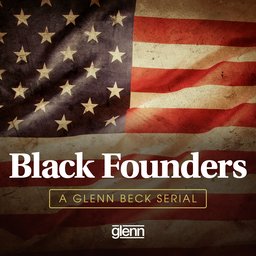Serial: Black Founders - Crispus Attucks
Black Founders
Watch The Glenn Beck Radio Program, Monday through Friday, 9am - 12pm ET on BlazeTV. www.BlazeTV.com/GlennIn the mid-1700’s, people living in the American Colonies were British subjects, still loyal to the crown. However, as the one million people spread across 13 colonies became more and more industrious, they also became more and more frustrated with the lack of input they had over taxation and the laws that came down from Great Britain.
These were the things that governed their lives, and they didn’t like it. In fact, it seemed every time they started to gain an economic foothold in the new world, the British Parliament or the king would pull it out from under them. The Sugar Act, the Currency Act, the Stamp Act, and the Townsend Act all added to a growing disenfranchisement from 1750-1770, and also built a sense of American patriotism.
One such patriot was a young runaway slave from Boston, Massachusetts — Crispus Attucks.
Forgotten over the centuries is that the British institution of slavery, while much more prevalent in the southern colonies was also practiced in 18th century Massachusetts. In 1750, an ad taken out in the Boston Gazette described the escape of a ‘mulatto’ slave named Crispus Attucks, and offered a 10 pound reward for his return, about $2,000 in today’s currency.
Crispus was never captured and lived the next 27 years loving life as a sailor and a free man in the American Colonies.
Tensions were growing among British soldiers and colonists during this time. In addition to taxation without representation, the British Parliament issued writs of assistance that gave British officers the power to search any residence or building without warning or supervision and to confiscate whatever they deemed to be smuggled or otherwise improperly obtained goods. They cracked down on any protest or dissent and gave immunity to corrupt or abusive British officials. There was no right to trial by jury. And the colonials were forced to house British soldiers.
The tensions between British soldiers and colonists did not go unnoticed by Crispus Attucks, and one day Attucks and his sailor friends had finally had enough. They engaged some British soldiers in an altercation. A few days later, a soldier looking for work entered a Boston pub and came across Attucks. Recognizing him from the previous altercation, things escalated quickly. A scuffle ensued, and Attucks was shot and killed. In what became known as the ‘Boston Massacre’, Crispus Attucks died a martyr and became an American Hero.
Not only was Attucks the first black man to die during the American Revolution, he was also the first American to die for his country.
In 3 playlist(s)
Glenn Beck
Watch The Glenn Beck Radio Program, Monday through Friday, 9am - 12pm ET on BlazeTV. www.BlazeTV.com…Social links
Recent clips

Best of the Program | Guests: Rep Thomas Massie, Rep. Chris Stewart & Ezra Levant | 2/5/20
1:00:45

Trump Redefined the SOTU | Guests: Reps. Thomas Massie & Chris Stewart | 2/5/20
2:08:26

The Glenn Beck Program | Hour 3 | 2/5/20
32:23
 Glenn Beck
Glenn Beck

